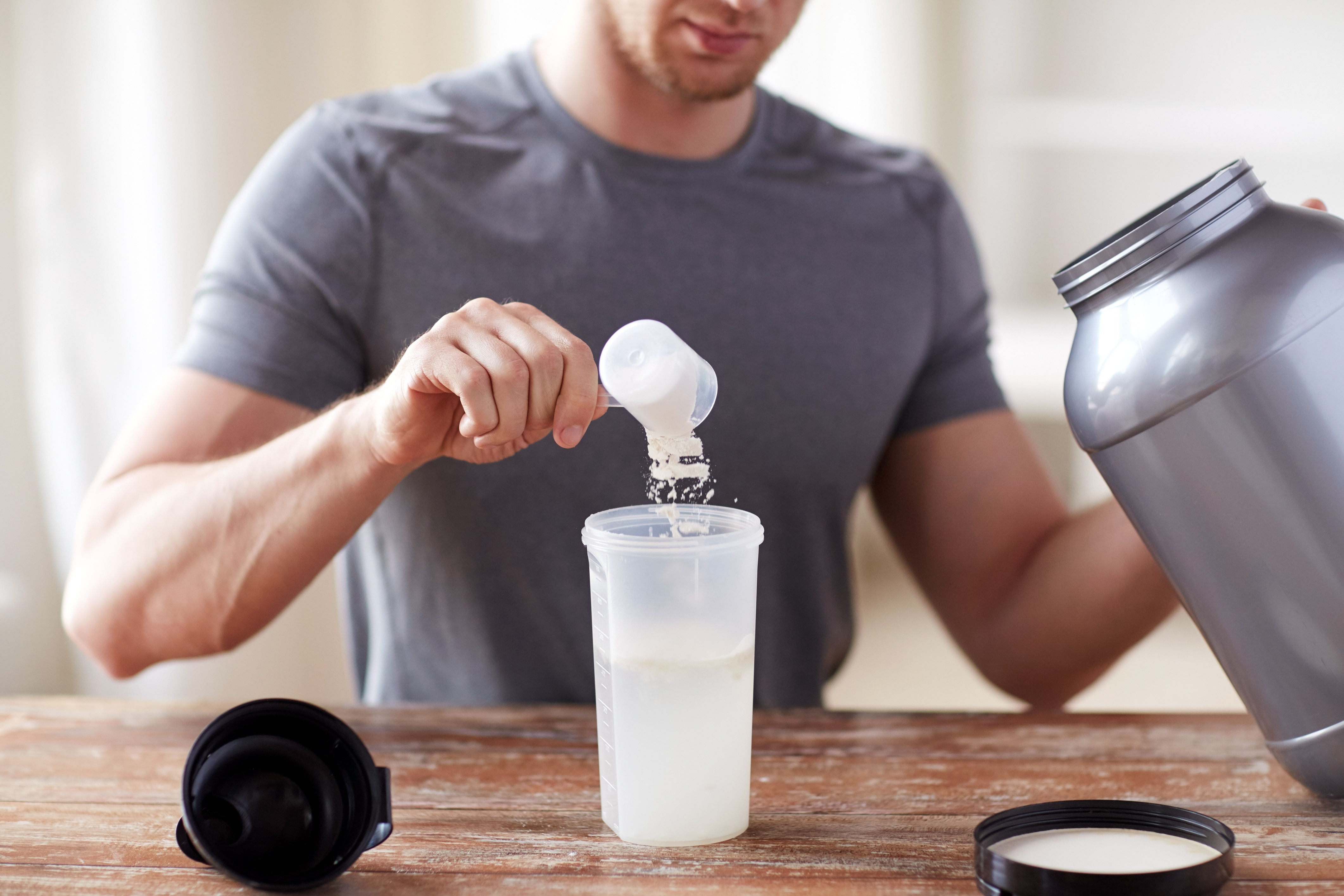Have you ever wondered what would happen if you decided to stop taking creatine? We’ve all heard about the benefits of this popular supplement, but what about the possible side effects? In this article, we’ll delve into the potential consequences of stopping creatine intake and give you the lowdown on what you can expect. So, let’s get started and explore the seven potential side effects you might experience when you decide to say goodbye to creatine.
First and foremost, it’s essential to remember that everyone’s body is different, so these effects may vary from person to person. However, one common side effect that many individuals report after discontinuing creatine is a decrease in muscle strength and power. Creatine is known for its ability to enhance athletic performance, and once you stop taking it, you might notice a decline in your strength and power output during workouts.
But don’t worry! We’ll reveal some tips later on to help you combat this issue. Additionally, some people experience an increase in fatigue and a decrease in energy levels when they cease creatine supplementation. This could be due to the fact that creatine plays a role in producing ATP, which is the primary source of energy for your muscles. So, if you’re feeling unusually tired after quitting creatine, this could be why. But fear not, we’ll be sharing some strategies to boost your energy levels as well.

Understanding the importance of creatine in the body
Creatine is a naturally occurring compound found in small amounts in certain foods and is also produced by our bodies. It plays a crucial role in providing energy for high-intensity activities, especially during short bursts of intense exercise. Creatine is stored in our muscles and is converted into ATP (adenosine triphosphate), which serves as the primary source of energy during physical exertion. Many athletes and fitness enthusiasts take creatine supplements to enhance their performance and muscle gains.
Common reasons why people stop taking creatine
Despite the numerous benefits of creatine supplementation, there are various reasons why individuals may choose to discontinue its use. Some common reasons include concerns about potential side effects, wanting to see how their body performs without creatine, or simply forgetting to take it regularly. However, it’s important to understand that stopping creatine intake can have certain side effects that may impact one’s physical performance and overall well-being.
The goal of this article
The aim of this article is to shed light on the potential side effects of stopping creatine intake. By understanding the impact of ceasing creatine supplementation, individuals can make informed decisions about its use and take necessary steps to mitigate any undesirable effects. So, let’s explore what happens when you stop taking creatine.
Dehydration
How creatine affects water balance in the body
One of the well-known effects of creatine supplementation is its ability to increase water content in the muscles, leading to a fuller and more vascular appearance. When you stop taking creatine, this water retention effect diminishes, and it may result in changes in your body’s water balance.
Symptoms and signs of dehydration
Without the presence of creatine to attract water into the muscles, there is a possibility of increased water loss through urine and sweat. This can potentially lead to dehydration if adequate fluid intake is not maintained. Common symptoms of dehydration include increased thirst, dry mouth, fatigue, dizziness, and dark-colored urine.
Prevention and management of dehydration when stopping creatine intake
To prevent and manage dehydration after discontinuing creatine intake, it is important to maintain proper hydration by drinking sufficient fluids throughout the day. Water is the best choice, but other hydrating beverages such as sports drinks or herbal teas can also be helpful. Monitoring urine color can serve as an indicator of hydration status, with a lighter yellow color being preferred. Additionally, consuming electrolyte-rich foods and beverages can help replenish minerals lost through sweat and urine.
Decreased Performance
Effect of stopping creatine on athletic performance
Creatine supplementation has been shown to enhance physical performance, particularly in activities that require short bursts of energy, such as weightlifting or sprinting. When you stop taking creatine, the performance-enhancing effects may diminish, and you may experience a decrease in overall athletic performance.
Potential decrease in strength, power, and endurance
Creatine plays a vital role in energy production during high-intensity exercises. Its absence from the body can result in reduced strength, power, and endurance, making it more challenging to perform at peak levels. You may notice a decrease in the amount of weight you can lift, slower running times, or a decline in your ability to maintain repetitions and sets during a workout.
Rebuilding performance after discontinuing creatine
If you decide to discontinue creatine supplementation and experience a decline in performance, there are strategies you can implement to rebuild your performance levels. Firstly, maintaining a healthy and balanced diet that includes an adequate amount of protein and carbohydrates is essential for optimizing energy levels and muscle recovery. Incorporating targeted strength and conditioning exercises into your training routine can help counteract the loss of strength and power. Additionally, gradually increasing training intensity and volume over time can help improve your overall endurance.
Muscle Loss
Impact of creatine cessation on muscle mass
Creatine supplementation has been shown to promote muscle growth and increase muscle mass due to its ability to enhance protein synthesis. However, when you stop taking creatine, your muscles may experience some changes.
Loss of water weight and muscle fullness
As mentioned earlier, creatine supplementation can lead to an increase in water content within the muscles, which contributes to a fuller and more pumped appearance. When you discontinue creatine intake, this water weight may be lost, resulting in a temporary reduction in muscle fullness. It is important to note that this decrease is not indicative of actual muscle loss but rather the loss of water weight.
Strategies to minimize muscle loss when stopping creatine
To minimize the potential loss of muscle fullness and maintain muscle mass after stopping creatine, it is crucial to continue engaging in resistance training exercises. This will stimulate muscle protein synthesis and help preserve muscle mass. Additionally, ensuring you consume enough protein and calories to support muscle repair and growth is essential. A diet rich in lean protein sources such as chicken, fish, eggs, and legumes, combined with a balanced intake of carbohydrates and healthy fats, can provide the necessary nutrients for muscle maintenance.

Fatigue and Lack of Energy
How stopping creatine can affect energy levels
Creatine plays a role in providing energy to the muscles during high-intensity activities. When you stop taking creatine, the immediate availability of ATP may decrease, which can lead to feelings of fatigue and a lack of energy.
Possible fatigue, tiredness, and decreased motivation
Without creatine supplementation, your body may require more time and effort to produce ATP for energy production during intense exercise. This increased demand on the body’s energy systems can result in feelings of fatigue, tiredness, and decreased motivation to engage in physical activities.
Methods to combat fatigue and boost energy post-creatine
To combat fatigue and boost energy levels after discontinuing creatine, it is important to prioritize rest and recovery. Ensuring you get enough sleep and allowing your body enough time to rejuvenate can significantly improve energy levels. Additionally, consuming a well-balanced diet that includes a variety of nutrient-dense foods can provide the necessary energy sources for your body to function optimally. Regular exercise, such as cardiovascular activities or low-intensity workouts, can also increase energy levels by stimulating blood flow and enhancing mood.
Weight Gain
Relation between creatine discontinuation and weight gain
Creatine supplementation can result in temporary weight gain due to the increased water content within the muscles. When you stop taking creatine, this water weight may be lost, potentially leading to a decrease in body weight.
Water retention and increased body weight
The water retention effect of creatine supplementation may cause an increase in body weight, which can be misinterpreted as actual weight gain. However, when you cease creatine intake, your body may naturally lose this additional water weight, resulting in a decrease in overall body weight.
Maintaining a healthy weight after stopping creatine
Maintaining a healthy weight after stopping creatine supplementation can be achieved through a balanced diet, regular physical activity, and mindful eating habits. Consume a variety of nutrient-dense foods, including fruits, vegetables, whole grains, lean proteins, and healthy fats. Engage in regular cardiovascular exercise and resistance training to support overall health and weight management.

Cramping and Muscle Soreness
Potential side effects of ceasing creatine intake
While creatine supplementation is generally safe, some individuals may experience muscle cramping and increased muscle soreness when they stop taking creatine.
Experience of muscle cramps and increased muscle soreness
The exact mechanism behind these potential side effects is not fully understood, but some individuals have reported experiencing muscle cramps and increased muscle soreness after discontinuing creatine intake. This could be due to changes in water balance within the muscle cells and subsequent alterations in muscle function.
Managing cramping and soreness post-creatine
If you encounter muscle cramps or increased muscle soreness after stopping creatine, there are measures you can take to manage these symptoms. Staying adequately hydrated is crucial, as dehydration can contribute to muscle cramping. Stretching and foam rolling before and after exercise can help alleviate muscle tightness and soreness. Additionally, ensuring you’re consuming a well-balanced diet that includes foods high in potassium, magnesium, and calcium, such as bananas, spinach, and yogurt, may help prevent muscle cramps.
Impaired Recovery
How discontinuing creatine can impact muscle recovery
Creatine supplementation has been shown to enhance muscle recovery by promoting protein synthesis and reducing inflammation. When you stop taking creatine, the beneficial effects on muscle recovery may diminish, potentially leading to delayed recovery from intense exercise.
Delayed recovery from intense exercise
Creatine aids in replenishing energy stores and facilitating muscle repair, allowing for faster recovery between workouts. Without creatine supplementation, your body may require more time to recover from intense exercise sessions, leading to delayed recovery and potentially increased muscle soreness.
Enhancing recovery processes without creatine supplementation
To enhance recovery processes after discontinuing creatine intake, it is crucial to prioritize proper nutrition and rest. Consuming a post-workout meal or snack that includes a balance of protein and carbohydrates within the first hour after exercise can support muscle repair and glycogen replenishment. Additionally, incorporating active recovery techniques such as light aerobic exercise, stretching, or foam rolling on rest days can aid in reducing muscle soreness and promoting overall recovery.

Mood Changes and Depression
Potential psychological effects of stopping creatine intake
There is some evidence to suggest that creatine supplementation may have positive effects on mood, cognitive function, and depression. Therefore, discontinuing creatine intake may impact these psychological aspects.
Impact on mood, cognitive function, and depression
Creatine is involved in supporting brain function and acts as an energy source for brain cells. Some studies have suggested that creatine supplementation may have an antidepressant effect and enhance cognitive performance. When you stop taking creatine, there is a possibility of psychological changes, including mood swings, decreased cognitive function, and a potential increase in depressive symptoms.
Taking care of mental well-being when ceasing creatine
To take care of your mental well-being after discontinuing creatine, it’s important to prioritize overall mental health. Engaging in regular physical activity, practicing stress management techniques such as mindfulness or meditation, and seeking support from friends, family, or professionals can help maintain a positive outlook and reduce the potential psychological impact of ceasing creatine intake.
Conclusion
Summary of the potential side effects of stopping creatine intake
When you decide to stop taking creatine, there are several potential side effects that you may experience. These include dehydration, decreased athletic performance, muscle loss (specifically water weight), fatigue and lack of energy, weight fluctuation, muscle cramping and soreness, impaired recovery, and potential mood changes or depression.
Importance of understanding individual responses and consulting professionals
It’s essential to recognize that everyone’s response to stopping creatine intake may vary. Some individuals may not experience any noticeable side effects, while others may encounter several. If you have concerns about stopping creatine supplementation or experience persistent or severe side effects, it is advisable to consult with a healthcare professional or a qualified sports nutritionist who can provide tailored advice based on your specific needs.
Making informed decisions about creatine use
Creatine supplementation can offer numerous benefits, but it’s important to understand the potential side effects when deciding to stop taking it. By being aware of the possible changes and implementing appropriate strategies, such as proper hydration, maintaining a well-balanced diet, and engaging in regular exercise, you can mitigate any potential negative effects and make informed decisions about creatine use in your fitness journey. Remember, what happens when you stop taking creatine may vary from person to person, so it’s crucial to listen to your body and prioritize your overall well-being.




